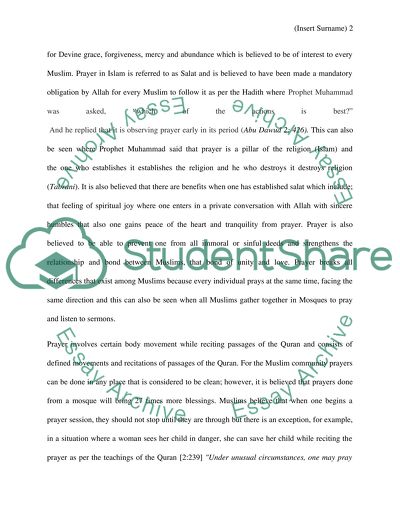Cite this document
(“Prayer in Islam Research Paper Example | Topics and Well Written Essays - 2250 words”, n.d.)
Retrieved from https://studentshare.org/religion-and-theology/1463594-prayer-in-islam
Retrieved from https://studentshare.org/religion-and-theology/1463594-prayer-in-islam
(Prayer in Islam Research Paper Example | Topics and Well Written Essays - 2250 Words)
https://studentshare.org/religion-and-theology/1463594-prayer-in-islam.
https://studentshare.org/religion-and-theology/1463594-prayer-in-islam.
“Prayer in Islam Research Paper Example | Topics and Well Written Essays - 2250 Words”, n.d. https://studentshare.org/religion-and-theology/1463594-prayer-in-islam.


